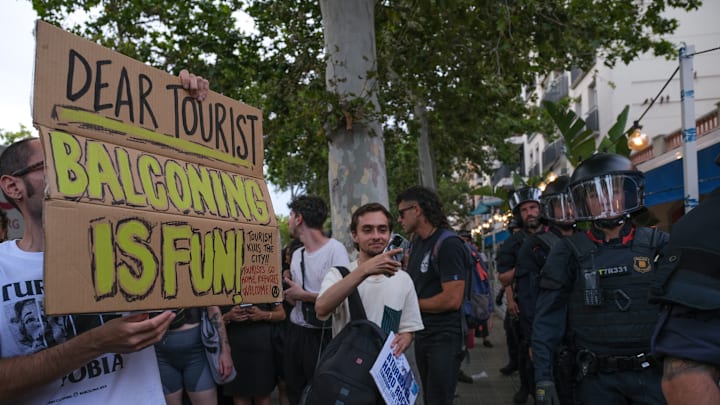I will always remember my trip to Barcelona. I stayed at a hotel near the Sagrada Familia, took a walking tour of Spanish Civil War sites, and got the best gazpacho of my life, all while discovering that the locals appreciated the Spanish that I had learned as a second language. Everyone was welcoming and helpful and I declared that this was the place where I felt most at home in a foreign country.
Years later, it seems that I visited during a golden era of tourism. This July, visitors to Barcelona sometimes heard chants of "Tourists go home!" while others were sprayed with water guns. According to NBC News and a source within the Guardia Urbana de Barcelona, some 2,800 protesters took to the streets to protest the impact of tourism in the city, though the "Neighborhood Assembly for Tourism Degrowth" which organized the event claimed that up to 20,000 citizens joined in the march. The Spanish newspaper El Pais points out that this is similar to the protests in Mallorca, Malaga, and Las Islas Canarias in May and June, saying that the overwhelming tourism is "an economic model that the majority of the citizenship considers to be pernicious and unsustainable"
[translated from Spanish].
The protesters' concerns are major ones. Protester Joan Navarro-Bertran had this to say about the cause in the NBCNews.com report.
"Tourism and hotels are the groups that really makes big money, but all the people are in a very poor situation and they don't have enough money to live," said Joan Navarro-Bertran. "That's the problem."
The fact that rent has risen 70 percent in the last ten years is part of the problem. Mayor Jaume Colboni has recently announced efforts to halt rental permits for foreign visitors and there are already restrictions in place that prohibit cruise ships from docking in certain terminals.
Colboni's plan aims to "make 10,000 units available to locals in four years." For now, visitors to this gem of Western Europe should be aware that they may not be as welcome as in ages past.
